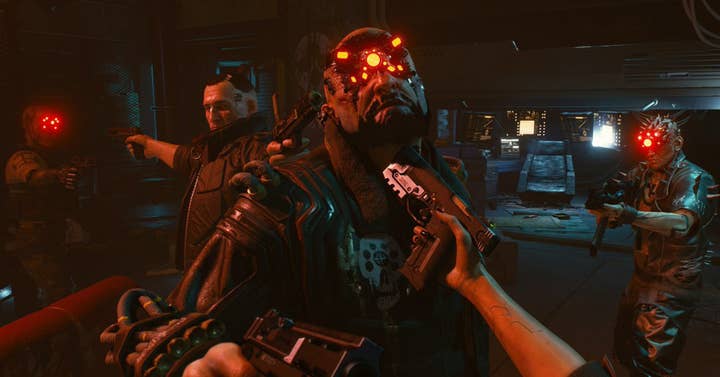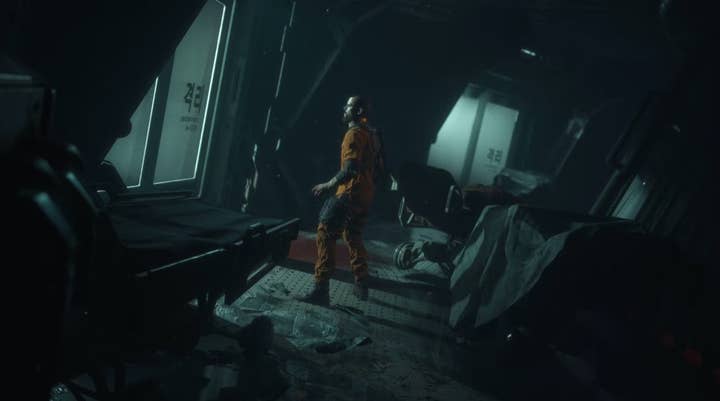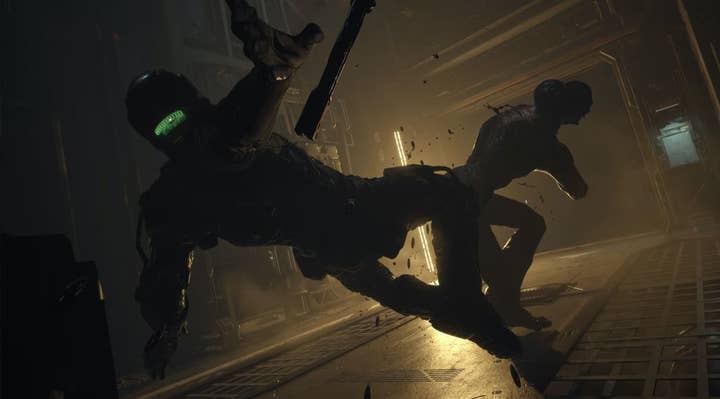To consumers, development crunch is increasingly a red flag | Opinion
Games like Cyberpunk 2077 and Fallout 76 have shifted public perceptions of crunch, now seen as a warning sign for bugs and low quality
For just a moment there, it felt like the bad old days all over again.
Striking Distance Studios CEO Glen Schofield's ill-judged tweet about the seemingly brutal crunch his employees are going through – boasting, rather than lamenting, about the 12-15 hour days and 6-7 day weeks they are doing, and insisting that it was being done out of passion rather than anyone forcing them to do so – could have fallen through a time warp from twenty years ago. It didn't, though; it was posted just last week, and that thankfully means that it met with a storm of criticism leading it to be swiftly deleted, retracted, and apologised for.
That, and I say this unironically, is progress. Masochistic attitudes to crunch, accompanied with sneering at the notion of work-life balance or a studio having any responsibility for its employees' physical and mental health, have not disappeared from the industry – far from it – but at least we've reached a place where they're unacceptable enough to get a negative backlash.
It's not so long ago that any kind of criticism against Schofield's statement would have been met with absolute scorn; there was an insular, chest-beating culture that appropriated the label of 'passion' at the heart of many development studios, and that label was enthusiastically taken up by business leaders across the industry who would miss no opportunity to shout down any criticism of crunch as questioning their employees' 'passion'.
Schofield's tweet was met with a storm of criticism leading it to be swiftly retracted. That, and I say this unironically, is progress
In reality, of course, for many development staff this 'passion' was highly performative. Displaying 'passion', in the form of working long hours and making huge personal life sacrifices, was a requirement for those who wanted to hold on to jobs and climb the greasy pole in an unstable industry which in the past had low workplace standards and was filled with companies that were, bluntly, often lorded over by dreadful, selfish man-children – a consequence in part of how many skilled, well-adjusted development staff the games industry lost to attrition as they hit their mid-thirties or forties and took the off-ramp to industries that would let them see their families for more than a few hours a week. I say this in the past tense, although there's a long way still to go; but the speed with which Schofield recognised that his tone was totally out of line and retracted his statement is at least a positive reflection on the direction of travel.
The brutal toll of crunch culture on developers' lives and relationships has made it far less acceptable within the industry itself – it's increasingly common for studios to try to get a leg up in the now highly competitive hiring market by advertising zero-crunch culture (including from Schofield himself) – but the negative view of crunch has also started to resonate with consumers, adding a potentially huge commercial downside to what was already a pretty poor business practice.
Consumers in the past tended to fall hook, line, and sinker for the "crunch is an expression of passion" line, and the nature of many responses to Schofield's tweets shows that some still believe that (or at least, view crunch as simply being part and parcel of how games are made). Realistically, though, most consumers don't care how the sausage is made – they just care about what they find inside the sausage once it's on their plate, and that's where the perception of crunch has become a huge liability, with many consumers coming to see crunch working practices as a red flag for a game's eventual quality.
Scanning comments in response to Schofield's ill-judged tweet, it's striking how many of the most liked and upvoted comments on major public forums mention Cyberpunk 2077 – whose troubled development process, widely-reported crunch period in the final months, and eventual disastrous launch, bug-ridden to the point of unplayability, seems to have been a Rubicon-crossing money for public views of crunch. Cyberpunk 2077 isn't alone in this – Fallout 76 is another game with a similar backstory that's also mentioned often – and taken as a whole, the association between reports of developer crunch and eventual poor quality of the launch product is strong, and only getting stronger. (This isn't a phenomenon confined to games, incidentally; reports of last-minute reshoots on movies also seem to create major consumer unease about their quality, with attendant impacts on opening weekend box office numbers)

At least among consumers informed and interested enough to be posting about such things online, there's a growing sense that serious crunch increases the likelihood that you're getting a shoddy product at launch – which is not, needless to say, how Glen Schofield would have wished his tweet to be interpreted, nor how any studio would like the tea leaves about their upcoming game to be read.
That consumer perception is, however, more than fair. It's not that every game which requires some crunch to get it over the finish line will be low quality, of course – but we've known for a very, very long time that employees' productivity and the quality of their work drops off dramatically as they work increasingly longer hours or go without rest days.
The brutal toll of crunch culture on developers' lives and relationships has made it far less acceptable within the industry itself
It's often claimed that Henry Ford knew this as far back as 1914, when he put his employees on eight-hour days and five-day weeks, but the claim that this was done to maximise productivity is apocryphal – Ford actually recognised the fundamental economic fact that workers would need more disposable income and leisure time to afford to buy his motor cars, and tried to kickstart the process with his own workforce. Nonetheless, in subsequent decades study after study has supported the conclusion that employees who work longer hours progressively produce less usable work and make more mistakes.
In video game terms, that means bugs; it means lapses of creative judgement; it means outstanding issues being closed in bug trackers without being fully addressed or properly re-tested; it means shipping an incredibly complex product with many of the final key decisions and sign-offs having been made by exhausted minds. Moreover, in the worst cases of crunch, the whole reason for the last-minute panic is project mismanagement in the preceding months and years – and there's only so much a burned-out team working late nights can do to make up for problems that have been undermining a project since its inception.
I truly, sincerely hope none of that applies to The Callisto Protocol. On a purely personal level, Dead Space was one of my favourite games of the Xbox 360 generation, and the presence of Schofield and others from the original team has made Callisto Protocol into hands-down my most anticipated game of the rest of this year. I desperately want it to be fantastic, but at the end of the day I'm a consumer too, and the news that the team is crunching to this extent has definitely tempered those expectations – enough to make me wonder if a pre-order isn't the move here, and waiting for a few post-launch patches to be released, at least, might not be more sensible. A glance around online reveals that my gut instinct here is far from being exceptional.

There is, however, another side to this which we should acknowledge – one which doesn't excuses Schofield's initial attitude (especially not the spectacle of a message talking about how 'we' are working crazy hours despite 'nobody forcing us,' coming from the actual literal CEO of the goddamned studio), but which does at least cast the whole situation in a more sympathetic light.
In normal circumstances, the answer to "Should everyone crunch for weeks or months, or should we let the release date slip?" is an emphatic vote in favour of a delayed release, especially now that consumers are increasingly likely to view a delay favourably as a sign of likely quality, while viewing crunch as a red flag. Callisto Protocol, however, doesn't find itself in normal circumstances – it finds itself, as a spiritual successor to the formerly moribund Dead Space franchise, facing down the barrel of a high-budget remake of the original Dead Space itself that's due to come out in January 2023.
In theory, that shouldn't matter – may the best game win, and all that – but in practice, it absolutely matters. Decades of examples have piled up to show us what happens when media with all-too-similar themes or presentation are released within a short space of one another; even where both are of excellent quality, it generally results in one or the other getting crushed, and first mover advantage is very, very real. That's true especially in a situation where you're already dealing with a somewhat niche product, and even more so when consumers in many parts of the world are tightening belts in the face of rising inflation and a winter of insanely high energy costs.
Even if there are situations where crunch is the least awful of multiple bad options, it should always be couched in an apology, not a boast
The proportion of consumers willing to buy both the spiritual successor to Dead Space and the remake of Dead Space is much lower than it would have been during an economic boom period, and coming out first (and before Christmas) is one of the few trump cards Callisto Protocol has to play in the face of EA's honestly rather underhanded decision to resurrect the moribund Dead Space franchise and put it right up against the launch of its creators' latest project.
Does that make crunch culture okay, or excuse Schofield's tweet – or allow us to dismiss concerns about what that crunch means about the game's quality? No to all of those. But it does illustrate that sometimes the answer to this situation isn't as simple as "let it slip"; sliding Callisto Protocol past the launch date of the Dead Space remake could be a disaster for the game, which is the first from a nascent studio (albeit one under the somewhat protective financial umbrella of the Korean publisher of PUBG) and could thus bode poorly for the studio's future overall.
There's honestly no good answer in this situation, and you can and should sympathise with the decisions the studio's leadership have been forced to make. Even if some degree of crunch is the least-worst option in some situations, though, we've very obviously moved past the times when studio bosses could wax lyrical about crunch as an expression of 'passion' or pretend that there isn't a trade-off against the quality of the work being done. Crunch is a reflection of a failure of project management, nothing more, nothing less – and even if there are situations where it's the least awful of multiple bad options, it should always be couched in an apology, not a boast.



